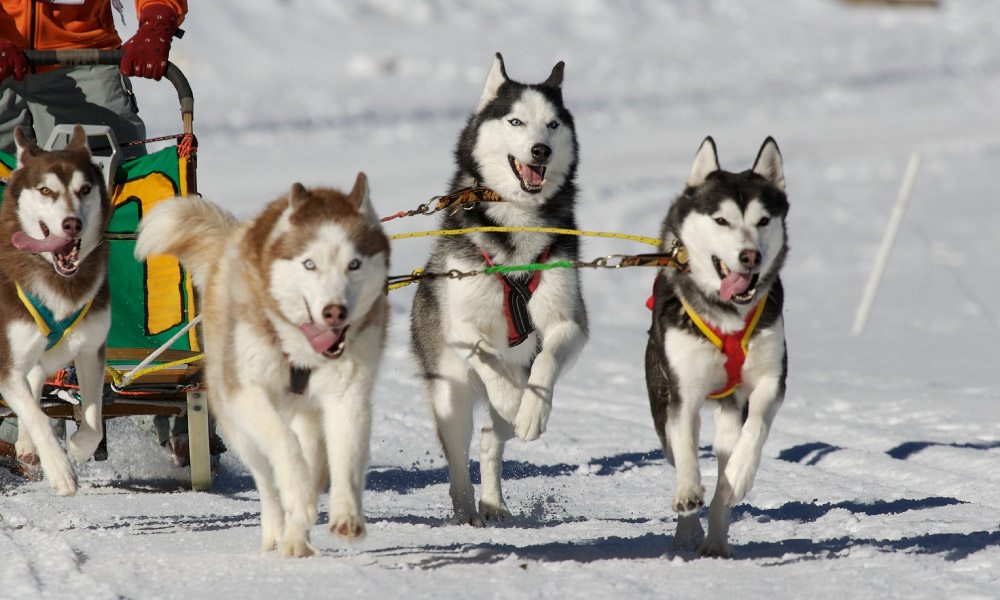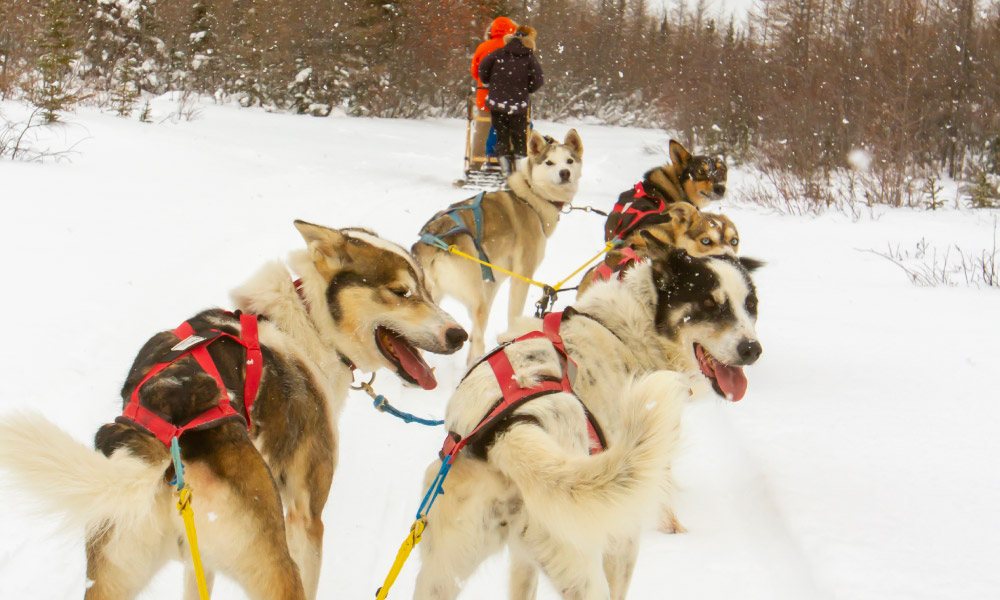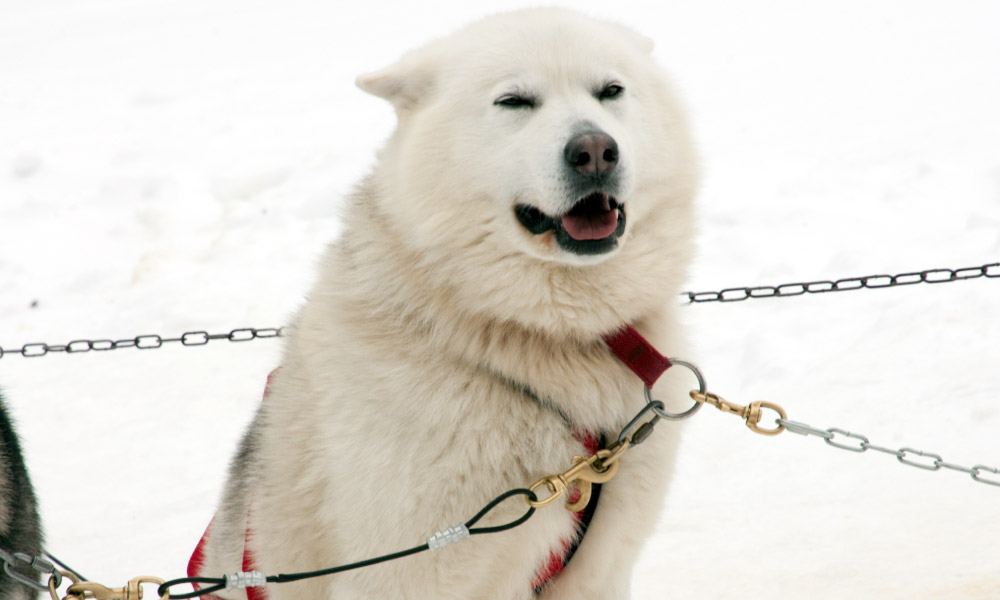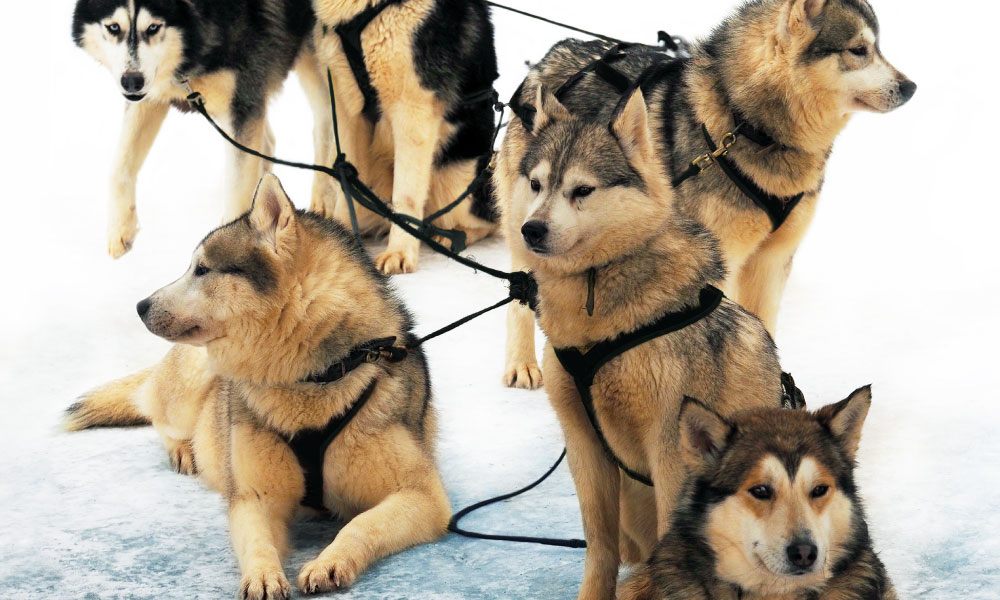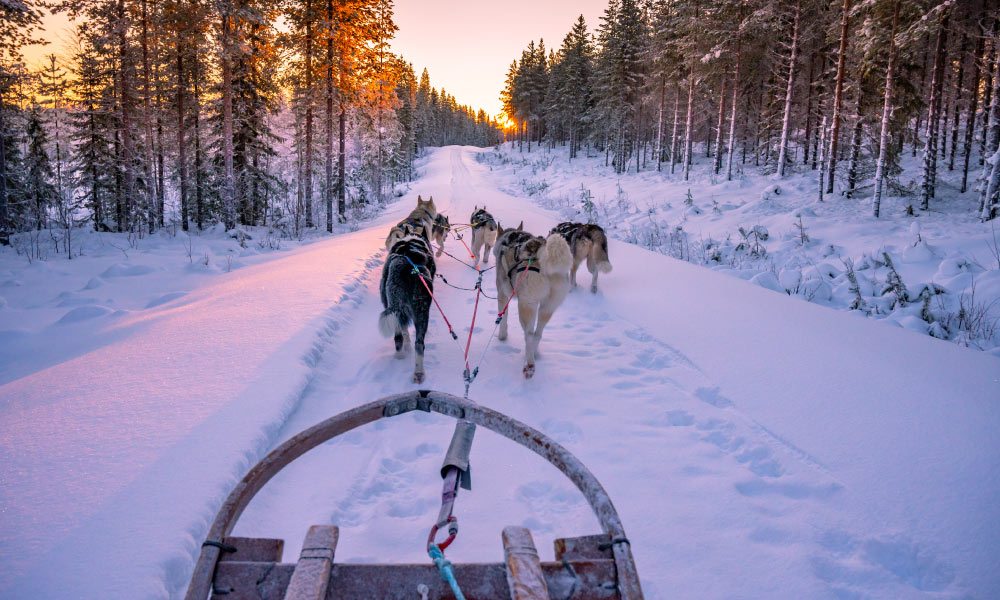
Self-Interested Caretaking™
I believe effective leadership is much like a Musher’s running of his or her dog sled team. While the bigger picture objective is to win races, the Musher’s primary responsibility is the care and feeding of the dogs. S/he must make sure that the dogs have all the resources that they need to do the best job they can do — which typically means rest, fuel, love, and care. Praise when praise is required. Discipline when discipline is required. Of course, we don’t mean anything pejorative by likening human beings to dogs. Dogs are pretty noble animals in their own right: they want to serve, they want to please, they want to do all this as human beings do.
The Musher must want to be on the sled. It’s cold – these things don’t run around on wheels in the summertime, in the mountains of Colorado, the Sierra Nevada or Alaska: they run in the snow. The climate is typically inhospitable, and it can be lonely because in many ways you are the one person who knows – as the human among the dogs – you’re the one who really knows the course that you want to run. You make the big decisions about where that sled’s going. The dogs may actually help you a little bit in terms of “nuancing” your way down the course. But where you want to go has been and will be your decision, and yours alone.
You’ve got to love the dogs. You’ve got to really care about the fact that you’re dog sledding. This is fun stuff! It’s hard, but it’s exhilarating. You need to have a really unique appreciation for this team that you’ve built, what its strengths are on a team basis, what its weaknesses are on a team basis. And you have to have a fairly acute understanding of the individual strengths and weaknesses of each dog because dogs sometimes need to be replaced. Dogs sometimes get injured. Sometimes they become inexplicably fatigued.
One of the key responsibilities the Musher has is to make sure the dogs are in the right places on the sled. The Musher needs to be highly sensitive to the team’s dynamics, the individual dog’s strengths and weaknesses. Also s/he needs to know when to let the sled go for a while, whatever the individual dog’s issues may be, and know when to stop the sled and begin to tend to the individual issues of the dogs. And as a Musher, that’s a part of the race calculus as well, because the nearest replenishment station may be 20 miles away, where you may have already arranged to have some fresh dogs.
So one of the greatest challenges any Musher has, is to deal with the possible replacement of a dog when the team is actually out on the trail. Are you going to get a utility dog? Or say it’s a lead dog – must I have another lead dog? Or there are other dogs that could conceivably be moved out of position into another? There are certain dogs that can just go-go-go. There are dogs that can do the Iditarod from beginning to end and they don’t get replaced. Sometimes regardless of need there is no way a dog can be replaced. You can plan for it in terms of needing a fresh team, but the conditions may not allow for it.
As the team leader, you have to think about these things, because unlike business, mushing can be a life or death undertaking. When you’re 50 miles out from base camp and you’re another 50 miles to the next way station, and one or more dogs need to be replaced, you need to have a strategy, you have to know in advance what your dog strategy is, just like you have to know what your human capital strategy is.
It should be clear from this that I don’t believe that Mushers are “servant” leaders. Being interested in the team, taking care of the team, even surviving with a team is not about being a servant to the team. I would actually call it “Self-Interested Caretaking™”. I don’t say it’s impossible, but I believe it’s extremely rare for a CEO to be successful without taking care of the team. I think a really good CEO, first and foremost, has to care about the “common weal” of the team. He or she must be less interested in his or her personal success, because if the team succeeds, s/he will succeed.
More on this later, but I ask you: can you win a dog sled race by crossing the line without the dogs, or without the sled? Can an executive declare any type of authentic victory which is not also a victory for his or her team?
New? Start here.
Stay in the Know
Sign-up to get our latest articles delivered right to your Inbox.
"*" indicates required fields
